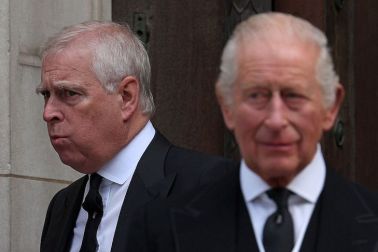Richard Askwith is Associate Editor of the Independent and lives in a small Northamptonshire village; presumably he commutes. After a year’s absence abroad he returns to his village and finds that two loved neighbours have moved, eight houses (out of 94) have been sold, and five more have ‘For Sale’ notices outside them.
The pub had closed; the sub-Post Office was closing. (The school and the shop had closed years ago.) … One nearby farm — which hadn’t even had electricity when I first visited it a decade or more ago — had become a state-of-the-art equestrian centre.
‘And what’s wrong with that?’ demands his wife, who is a sensible Chorus throughout this book. He can’t quite say, but begins to wonder whether his idea of rural England, hazy enough anyway, indeed his idea of ‘Englishness’ (that increasingly recurring topic these days) has any basis at all. He decides to go on a quest in order to find out. ‘Well, I called it a quest. My wife called it a mid-life crisis.’
What he finds is predictable, as he confesses he knew it would be: the people he talks to are varied and he knows how to draw them out. He knows that a rural economy ‘based on aromatherapists, pet-groomers, and life-coaches’ cannot last. Nevertheless England is
astonishingly adaptable. (Who could have imagined even 20 years ago that they would be farming buffalo in Warwickshire, llamas in Lincolnshire and ostriches and crocodiles in Cambridgeshire?)
He visits his hero Ronald Blythe, author of Akenfield, the famous story of a rural community based on interviews in the mid-1960s. Blythe a little astonishes Askwith with his acceptance of change:
People have always wanted to get away. That’s why, as soon as bicycles were invented, everybody got a bike — suddenly life had a 30-mile radius. Now people go to football matches in Istanbul. But that’s very exciting, isn’t it? And of course people can do what they like now. In the old days, fear of local gossip was ferocious.
So our Questor comes home and decides he likes his fellow-incomers. He looks across the landscape:
I became aware of something curious. I could sense my village’s soul more vividly here than among its cottages … This mud, this vivid spattering of blood-red hawthorn berries. An unexpected realisation warmed my blood, like a parent’s hand on a young shoulder. This is my village after all.
It is a gentle book, a search for something no longer there, as perhaps it never had been. Real England makes the same sort of journey but is very different. Richard Askwith investigates the decay of ‘community’, Paul Kingsnorth investigates its deliberate destruction. He is a campaigner, against uniformity, against the crushing of what is individual in the interests of profit. He is not strident, he is fair. He always gives the other side of the case, when it is possible to find it; nevertheless he makes you want to hold your hands over your ears.
Take as an example something called ‘Rosewheel’, which has bought up a part of Chinatown at the back of Shaftesbury Avenue in London.
Its website is being ‘currently updated’. I check with Companies House, but Rosewheel has no telephone, fax or email. It was incorporated in 2003, just before it bought the 200-year lease on this building. It appears to have no other projects, no previous history. Its accounts are overdue.
The fear, he is told, is that it will be turned into a vast ‘Chinese shopping centre’ with its own security staff, and only ‘consumers’ will be allowed to enter. Present residents claim that it will include public thoroughfares, which will be shut. Can that be true? It is the kind of enclosure that drove John Clare mad 200 years ago.
The worst example of this worship of the ‘bottom line’, this erasure of individuality, this centralised hatred of difference and variety, is one that happens to affect most of us, the existence of pub-chains. The brewers even outwitted Mrs Thatcher:
The 1989 ‘Beer Orders’ decreed that no brewer could own more than 2,000 pubs. So the brewers created PubCos — stand-alone pub companies which were not brewers and therefore exempt … Today the PubCos own around 20,000 pubs, are multinational conglomerates with no particular attachment to anything but their shareholders.
They put in managers instead of tenants, make their pubs uniform in decor and stock. When Kingsnorth wanted to take a photograph of the interior of a Weatherspoons, he was told by the manager that he had to telephone the ‘media team’ at head office — of a pub!
George Monbiot says, ‘This is an urgent, important book.’ It certainly is if, as Kingsworth says,
six urban locals close every week, often replaced by giant, town-centred binge-drinking sheds known in the trade as ‘high-volume vertical drinking establishments’.
No chairs, because the more you sit the slower you drink. Zac Goldsmith, director of The Ecologist, says ‘this book should be read by everyone’. Maybe it should, if you are young and have energy to try to stop all this. If you are older you have a temptation to pull the bedclothes over your head or go out and sample what little remains while it still does — which I intend to do. My local is owned by a family brewers (Arkells) and has not changed so far, though it has to be said there are fewer and fewer people in it. Beer in the supermarket is a third of the price — to buy and drink alone at home? As Kingsnorth remarks, ‘This is the greatest social change since the Norman Conquest.’




Comments